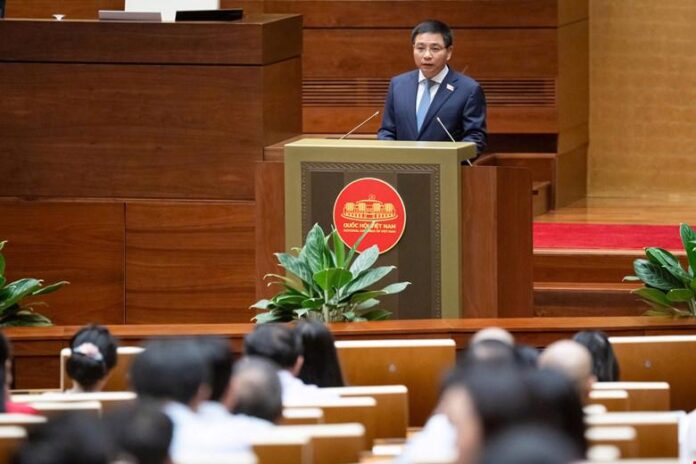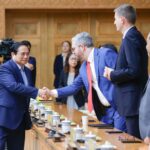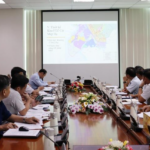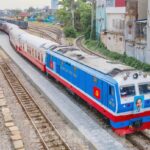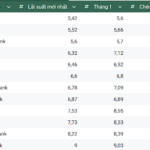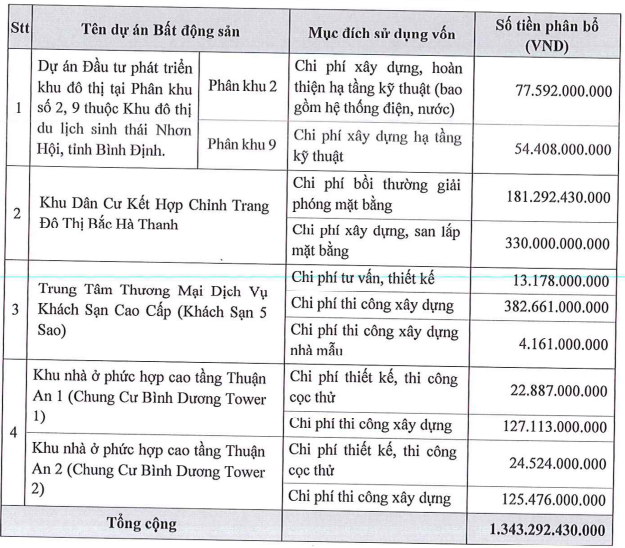On May 13, Minister of Finance Nguyen Van Thang, on behalf of the Prime Minister, presented a draft resolution of the National Assembly to replace Resolution No. 35/2021/QH15 dated November 13, 2021, on the pilot of several special mechanisms and policies for the development of Hai Phong City.
The draft resolution emphasizes the view of only stipulating some suitable and truly necessary mechanisms and policies for the city’s development that falls under the National Assembly’s jurisdiction to decide but is not yet regulated by law or differs from the current law. It also inherits the mechanisms and policies that the National Assembly has approved in Resolution No. 35/2021/QH15 and supplements appropriate mechanisms and policies that are being piloted in some localities.
There is a focus on enhancing decentralization and authorization for the city to increase its proactiveness, creativity, self-reliance, and accountability while ensuring the monitoring and supervision of the National Assembly, the Government, and the City’s People’s Council.
The proposed specific policies for the city’s development are constructed into six main policy groups with 41 specific policies. These include investment management, financial and state budget management, planning-urban-resource-and-environment management, science and technology management and innovation, income of civil servants and public employees managed by the city, and the establishment and mechanisms in the city’s Free Trade Area.
PILOTING BREAKTHROUGH MECHANISMS AND POLICIES TO ATTRACT HIGH-TECH AND FINANCIAL INVESTMENT
Regarding the establishment of a Free Trade Area in the city, the draft resolution stipulates: “The Free Trade Area in Hai Phong City is an area with a defined geographical boundary, established to pilot breakthrough mechanisms and policies to attract investment, finance, trade, and services to promote exports, industry, research and development (R&D), and attract high-quality human resources.”
The Free Trade Area is organized into functional areas, including a production area, a port and logistics area, a commercial and service area, and other types of functional areas as prescribed by law.
The functional areas within the Free Trade Area that meet the conditions of a duty-free zone as prescribed by law are ensured the activities of inspection, supervision, and control by the customs authorities and the state management activities of relevant agencies according to their respective fields as prescribed by law.
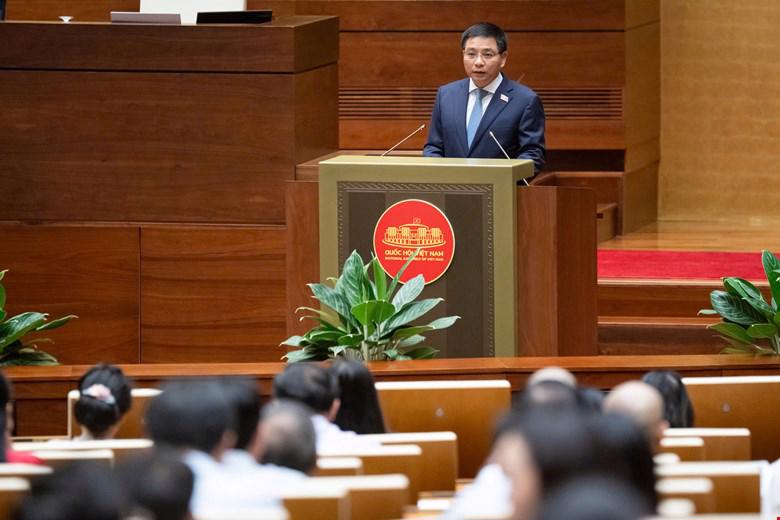
According to the Ministry of Finance, the current laws do not regulate the establishment and operation of free trade areas. Based on the study of free trade area models worldwide, the city proposes piloting the establishment of a Free Trade Area to pilot breakthrough mechanisms and policies to attract investment, especially in high-tech, finance, and high-quality tourism, trade, and services.
By doing so, it will help accelerate the city’s socio-economic development, leading to a pilot summary and nationwide application. In addition, the proposal to establish a Free Trade Area aims to create new momentum by developing breakthrough mechanisms and policies, helping to promptly address difficulties and obstacles and unleashing all potential and resources for the city’s rapid and sustainable development.
It also aims to achieve the goals set out in Resolution No. 45-NQ/TW of the Political Bureau.
At the same time, the draft resolution proposes decentralizing the decision-making power to the City People’s Committee to establish, expand, and adjust the boundaries of the Free Trade Area associated with the Dinh Vu-Cat Hai Economic Zone and the southern coastal economic zone of Hai Phong City, similar to industrial parks.
This decentralization is consistent with the direction of promoting decentralization and delegation stated in Resolution No. 18-NQ/TW dated October 25, 2017, at the 6th Conference of the 12th Central Committee of the Party and the direction of General Secretary To Lam on enhancing decentralization and delegation with the motto “localities decide, localities do, and localities take responsibility” at the 10th Conference of the 13th Central Committee of the Party.
CLARIFYING RISK MANAGEMENT MECHANISMS AND SUPERVISION TO ENSURE FLUIDITY WHILE MAINTAINING FINANCIAL SAFETY
To promote investment attraction and boost production and business activities within the Free Trade Area, the draft resolution stipulates some specific policies on simplifying administrative procedures related to investment and business, import and export, entry and exit, temporary residence, and work permits, as well as land and construction procedures.
It also optimizes investment incentives regarding land and water surface rent and taxes and allows foreign bank branches to open transaction offices within the Free Trade Area outside their branch headquarters.
Moreover, to pilot the “one-door” mechanism in the Free Trade Area and shorten the time for administrative procedures, the draft resolution authorizes the Management Board of Hai Phong Economic Zone to directly manage the functional areas within the Free Trade Area and grants them the authority to directly handle procedures related to the issuance of certificates of origin, business licenses, and work permits for investors and employees in the area.
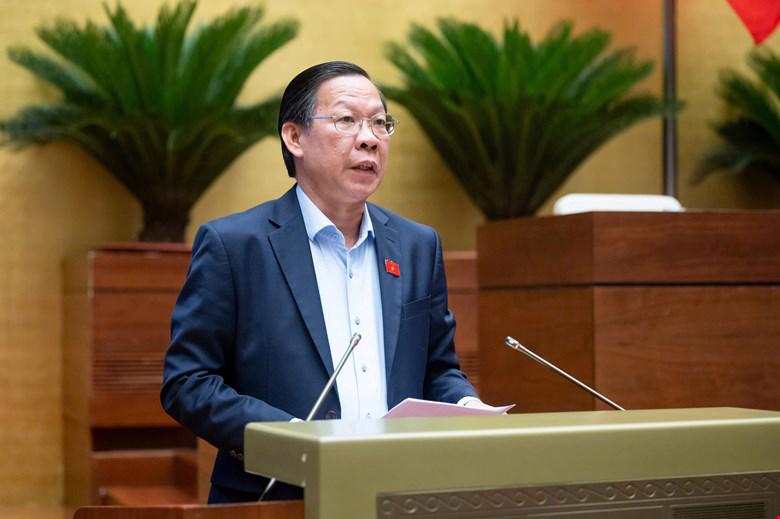
The National Assembly’s Committee for Economic Affairs and Finance reviewed the content of the draft resolution and considered the pilot establishment of the Free Trade Area as necessary and a political commitment of Hai Phong City and the Government, with sufficient political and legal grounds.
However, according to Mr. Phan Van Mai, Chairman of the National Assembly’s Committee for Economic Affairs and Finance, this is a significant issue involving not only the economy but also national defense, security, and social order. Therefore, it is necessary to clarify its impact on economic growth, the state budget, and society, as well as its regional spillover effects.
The risk management mechanism and supervision should ensure fluidity while maintaining financial safety, economic security, and social order. Additionally, the responsibilities of individuals and organizations involved in the implementation process should be clearly defined.
Regarding land use in the Free Trade Area, the draft resolution states: “Land use in the Hai Phong Free Trade Area is not subject to the national land use planning and plan indicators allocated by the competent authority to the city.” The Committee basically agrees with this proposal to pilot outstanding policies in special economic zones but requests specific regulations and guidance for implementation.
Concerning the authority of the Management Board of Hai Phong Economic Zone to implement the “one-door” mechanism, the Committee requests a review to ensure the simplification of administrative procedures. The procedures should be clear, transparent, timely, and reasonable regarding the process, authority, and organizational capacity.
On tax incentives within the Free Trade Area, the Committee agrees with applying preferential tax rates similar to those in economic zones but suggests considering the incentive period. In the case of enterprises subject to global minimum tax rules, they should pay taxes according to the corresponding regulations.
For the policy on transshipment of goods, the Committee requests clarifying the process and control mechanism to prevent illegal transshipment to third countries and regulate “shadow” investment activities.
Regarding the policy on foreign currency transactions, pricing, and payments, the Committee considers this a new policy that affects foreign exchange management and monetary security. However, there are no specific regulations on the management, control, and risk governance mechanisms to ensure anti-money laundering. Therefore, it is necessary to clarify this issue…
“US-Vietnam Trade Deal: A Mutually Beneficial Partnership”
On May 13, Prime Minister Pham Minh Chinh met with representatives of the American business community investing and operating in Vietnam. The purpose of this meeting was to listen to and address any challenges they may face, as well as to discuss proposals to enhance Vietnam-US investment and business cooperation.
“German Businesses on Challenges and Opportunities in Vietnam Amid Global Flux”
“As 2025 unfolds, the German Business Association in Vietnam (GBA) continues to demonstrate its strong commitment, strategic agility, and long-term dedication to Vietnam’s vibrant economy.
Developing a Network of National Railways: Expanding Horizons with 6 New Routes
“Vietnam’s Ministry of Construction is forging ahead with plans for future infrastructure development. Minister Tran Hong Minh has authorized the initiation of pre-feasibility studies for six railway projects, slated for the 2025-2027 period. This decisive move underscores the ministry’s commitment to enhancing the country’s transportation network and connectivity.”


























